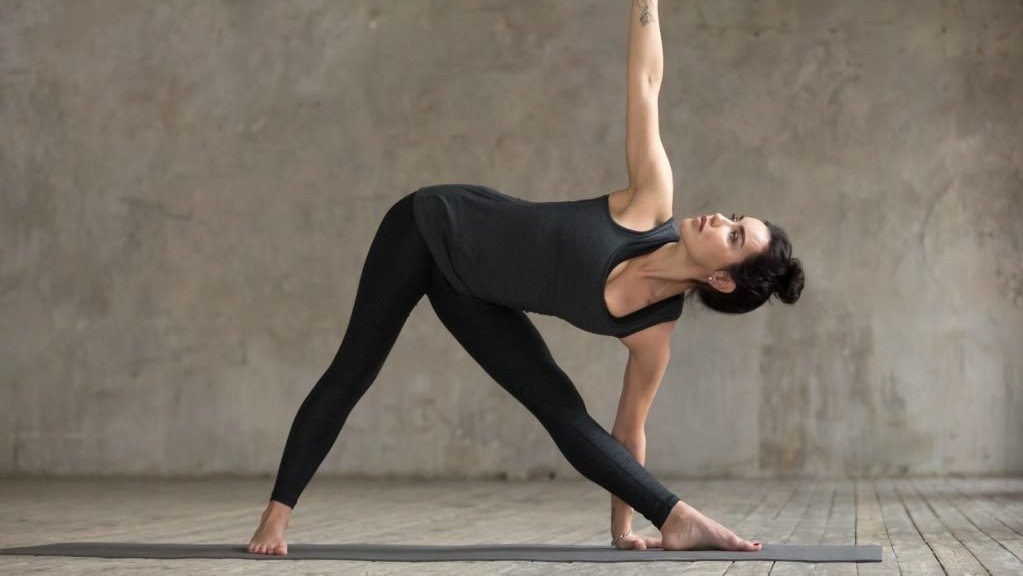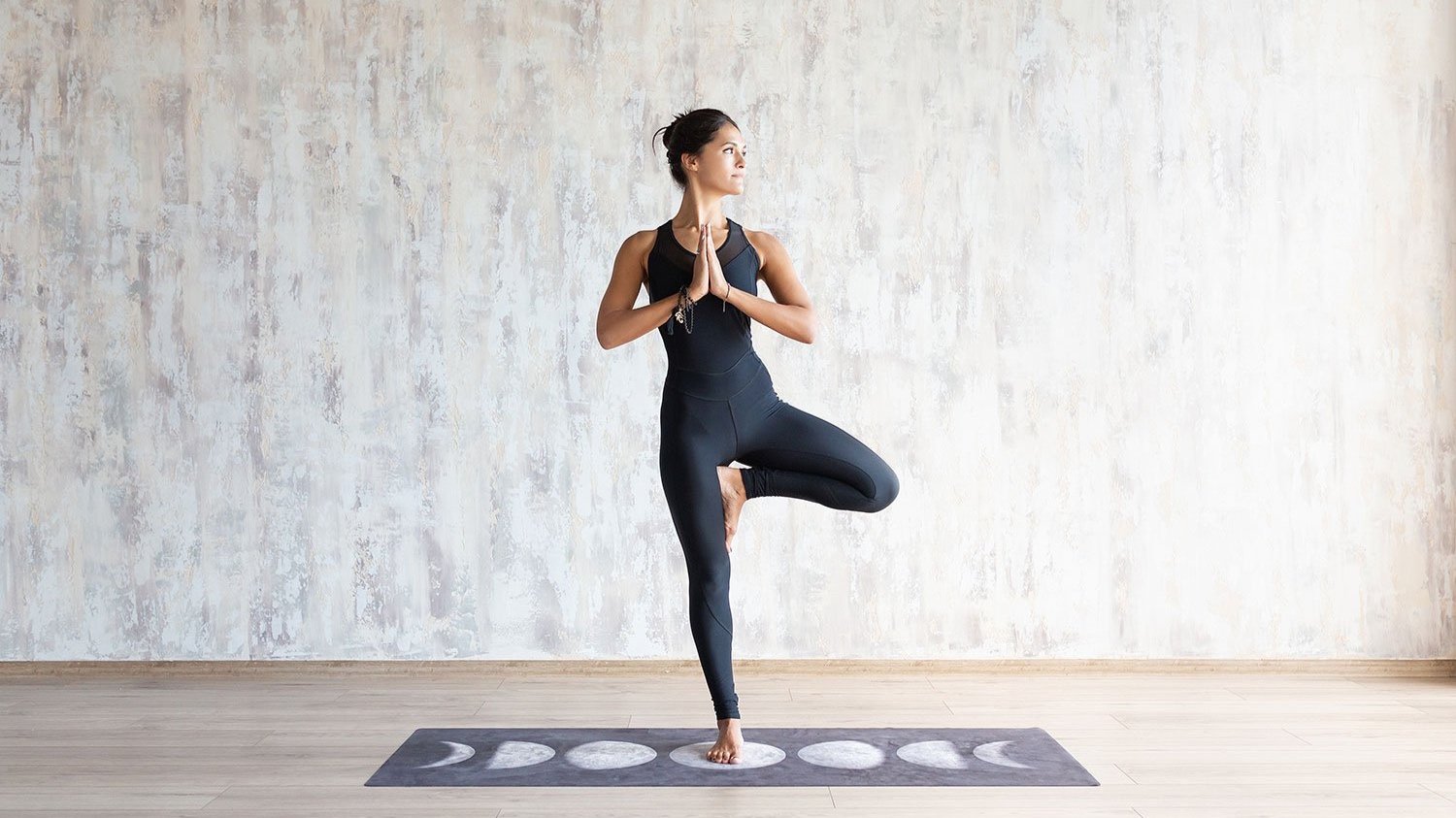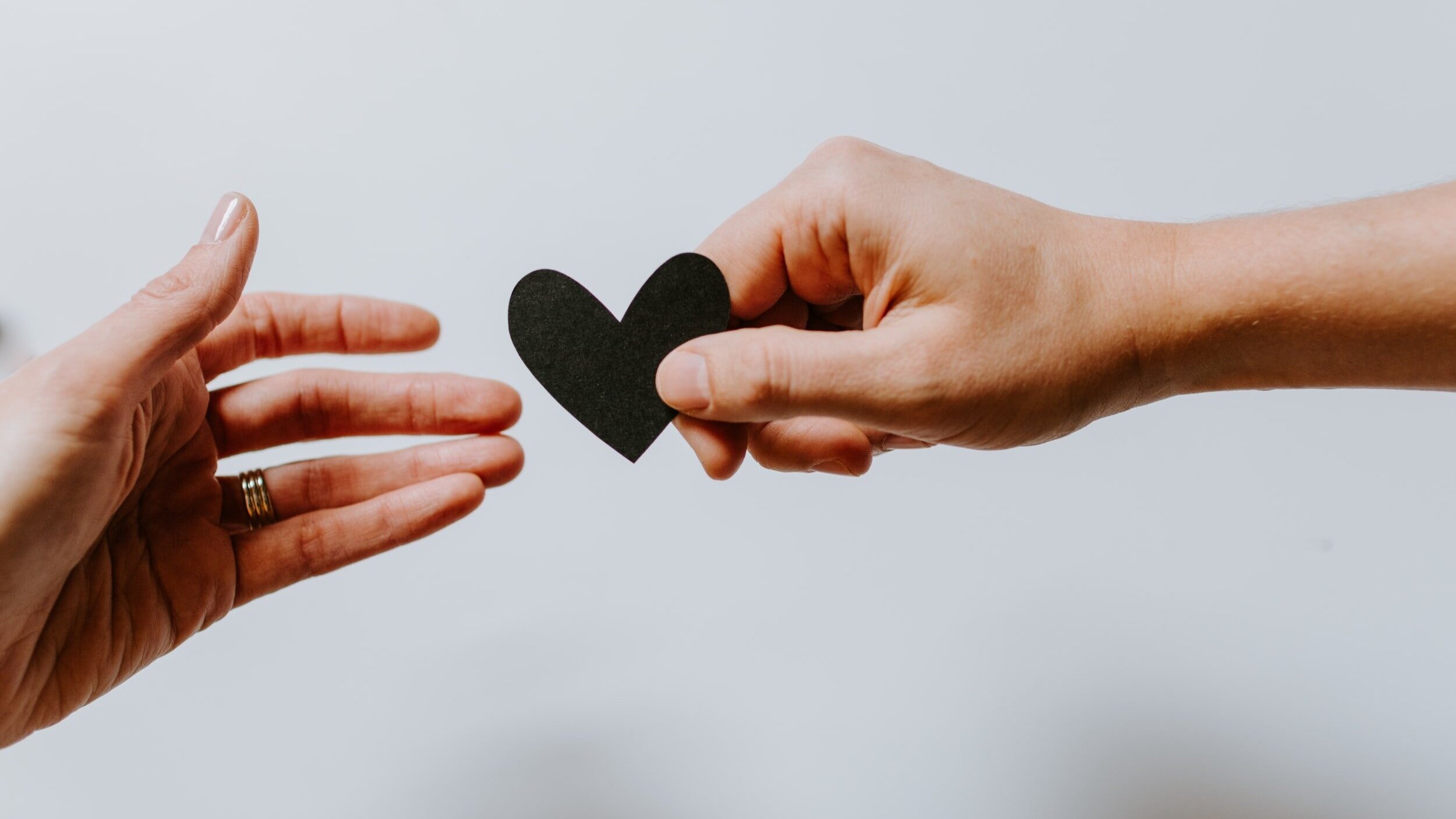Discover the power of resilience with the new This Is Yoga Sydney Blog! Explore Craig Hopper's insightful blog on overcoming failure in just 3 simple steps. Learn to feel, change your frame of mind, and move forward with grace. Uncover the 3 F's for dealing with failure—Feel, Framing, and Moving Forward, to help you move positively into 2024. Embrace life's disappointments, reframe your perspective, and stride confidently into the new year. Join us on the journey of healing and growth.
Read MoreSTUDY: THE EFFECT OF YOGA ON STRESS, ANXIETY AND DEPRESSION IN WOMEN
Most of us have heard in recent years how yoga can help reduce feelings of stress, anxiety and depression in our life. In recent decades, several medical and scientific studies on yoga proved it to be very useful in the treatment of some diseases. This study was conducted to investigate the effects of yoga on stress, anxiety, and depression in women with a mean age of 33.5 ± 6.5 years after 12 yoga classes.
Before each participant started integrating Hatha yoga into their lives, they each completed the DASS-21 (Depression Anxiety Stress Scale-21) questionnaire to assess their current mental health. The women then participated in 3 Hatha yoga training sessions per week for 4 weeks. At the end of the 12th session, the questionnaire of DASS-21 was again completed by the participants. It was found that the difference between the mean scores of depression, anxiety, and stress before and after 12 sessions of regular Hatha yoga was statistically significant with an overall decrease in the participants depression, anxiety and stress.
This controlled study continues to show that yoga can be used as a complementary medicine to reduce feelings of anxiety, depression, and stress. Increased stress, depression and anxiety are unfortunately features of our modern lifestyles. Due to the adverse effects of drugs in the treatment of anxiety and depression, and in some cases their lack of effectiveness, researchers have been seeking nonpharmacological and non-invasive treatment for these disorders. Yoga exercises helped improve the variables of self-description, psychological status, and the quality of life. Research suggests that yoga as an intellectual and mental exercise, improves the feeling of health in individuals.
Furthermore, yoga can improve some of these psychological conditions for monitoring and managing stress and negative emotions, increase positive emotions, and help mental balance in individuals.
Due to the effective role yoga has on reducing stress, anxiety, and depression, practicing yoga will only help improve your mental health. Step onto you mat at one of our studios today to experience these benefits for yourself.
Study - NCBI.NLM.NIH.
How to stimulate your vagus nerve to reduce stress and anxiety
What is the vagus nerve?
The vagus nerve is a long and powerful nerve that connects the brain and gut together. It runs from the brain, passing and contacting the tongue, vocal cords, throat, heart, lungs, diaphragm, liver, spleen, large intestine, small intestine, pancreas and kidneys, ending as a ball of nerve endings in the stomach. Hence why it’s often referred to as the ‘wandering nerve’!
The vagus nerve and our relaxation response
The vagus nerve largely contributes to the parts of the nervous system responsible for both the fight or flight and rest and digest responses. And as the vagus nerve connects with the lungs and diaphragm, means the way we breathe affects it. If the vagus nerve senses relaxed, slow breathing, it relays messages to the brain that everything is a-ok, and there’s no need to stress.
Whilst the science behind the nervous system runs deep and you could read about it for hours, there’s no substitute for first-hand experience. Simply put; we know what it feels like when we stimulate the vagus nerve, because we feel more relaxed. Think of the vagus nerve a little like your in-built de-stressor, available to engage with at any time. In a world where many of us are currently experiencing situations that could elicit anxiety and stress, it’s worth knowing how to work with the vagus nerve to bring your body into a state of balance, and empower yourself with your own healing tools.
Five ways to start working with the vagus nerve in yoga
1. Slow deep breathing
Breathing is one of the most simple and effective ways to stimulate the vagus nerve and elicit the relaxation response. Simply taking a slow, long and diaphragmatic breath is enough to encourage the vagus nerve to let the brain know it’s time to relax.
The vagus nerve runs through the throat and vocal cords too however, so specific yogic pranayama techniques like Ujjayi breath and Brahmari breath (humming-bee breath) can be even more powerful. To practice Brahmari breath, take a long breath in and then let out an audible ‘hummmm’ with your mouth closed as you exhale.
2. Singing and chanting
Similar to the way Brahmari breath vibrates the vocal chords, singing and chanting have been shown to work with the vagus nerve to bring the body into a state of ‘rest and digest’. If singing makes you feel self-conscious and stressed, try singing in the shower or singing along with the radio in your car! Any song or mantra you enjoy can help to bring about this response, but the ‘Aum’ or ‘Om’ mantra is particularly effective for cultivating a sense of calm, and is said to send out purifying, positive vibrations to the environment around you.
3. Cold therapy
Have you tried cold showers yet? Popularised by Wim Hof and his style of breath work coupled with cold showers, cold exposure has increasingly been found to help relieve anxiety and stress, stimulate the vagus nerve, and promote healthy mitochondria (the ‘engines’ within each of our cells). If a full-on cold shower isn’t possible, try splashing your face with cold water – especially when in the midst of a wave of worry or anxiety – as this has similar effects, or stepping outside for short amounts of time with minimal clothing in cold weather.
If you want to take this further, combine the cold showers and breathing techniques with yoga targeting the core in our Strong core radiant health program.
4. Meditation
Whether it’s a guided meditation session, or a regular routine of sitting and watching your breath, meditation has been shown to activate the parasympathetic nervous system by slowing the heart rate and breathing, relaxing the muscles of the abdomen, and slowing brainwave activity.
All of these aspects signal to the vagus nerve that the body is in a relaxed and safe state, thus sending messages to the brain to let it know it’s ok to relax. Positive, loving thoughts are also highly beneficial for vagus nerve activity, so try the Buddhist Metta Bhavna or ‘Loving Kindness’ meditation to start with.
5. Gut Heath
The brain and gut are in constant communication via the vagus nerve. Which is why gut health and mental health are so intrinsically linked. In fact, research shows that when it comes to people with food sensitivities, anxiety, gut problems, brain fog and depersonalisation, a poorly functioning vagus nerve is often at play.
Having a good balance of healthy gut bacteria has been shown in numerous studies to positively affect the vagus nerve and contribute to better brain health. If you suffer with digestive issues – reflect upon whether these bouts of indigestion or stomach issues tend to be accompanied by mood swings or brain fog. If the answer is ‘yes’, it’s time to take greater care of your gut, as over 80% of our immune system is actually located within it!
Taking a good quality probiotic can help improve gut bacteria, as can including more pre and probiotics in your meals – think sauerkraut, kimchi, kombucha or kefir. Practices like occasional fasting, ensuring you’re not eating too late at night, and cutting down on refined sugar can also have a positive impact upon gut health, thus reducing anxiety and stress too!
Yoga for mental health
The ancient science of yoga unites poses with breathing and concentration to build strength, awareness and harmony between mind and body. Yoga provides many obvious physical benefits – flexibility, stamina, circulatory health, to name a few – and now more than ever, we realise its important role in our mental wellness too.
Self-care is a hot topic, thankfully, as with life continuing to pick up speed all around us – we’ve got to slow down and look inward, at our own mental health.
Yoga helps our mental health by:
Relieving anxiety
Lowering depression
Promoting better sleep
Fighting fatigue
Decreasing stress
Improving focus
Increasing tolerance
Up the ante with the extensive neurological benefits of meditation. Studies show that it increases focus and concentration, and lowers levels of the stress hormone cortisol.
Anxiety, stress and depression are often inter-linked. They manifest in many different ways, causing everyones’ experience of mental illness to be unique, sometimes including:
Physical sickness
Difficulty breathing
Emotional outbursts
Low mood
Poor sleep
Physical aches and pains
Coping strategies such as addictions
Yoga and meditation promote relaxation
Yoga and meditation promote relaxation – the opposite of anxiety, stress and depression. They build our ability to stay centred, which is vital for stress management. By pausing to breathe, meditate or stretch, the mind is directed away from the trigger and a biological reaction of calming begins.
Specific yoga and meditation practices stimulate our vagus nerve which is involved in our parasympathetic nervous system – our rest and digest response.
These simple practices amplify awareness of what’s happening in our body, making it possible to detect changes and early signs of mental health issues. How? One way is by teaching us to be present, rather than worrying about what’s occured in the past or what may happen in the future.
And… Exercise naturally increases the flow of serotonin, ‘the happy hormone’. So moving and relaxing our body calms the mind, and enhancing our mental health positively affects our physical health.
When the world feels out of balance, unequal or low, yoga can help us maintain our internal equilibrium and elevate our experience of daily life. And it’s available to us anywhere, any time.
How to cultivate work life balance
The concept of work life balance has shot to glory in recent years, as society moves away from hustle-at-all-costs culture and closer towards something resembling the hallowed concept of balance.
While work life balance is an idyllic goal, we like to keep things realistic and dedicate ourselves towards life juggling—meaning we keep track of what balls we have in the air at once, what ones we can afford to drop and what ones need particular attention.
Here are our top tips to help you juggle it all.
GLASS VS RUBBER BALLS
On the subject of balls in the air, it might be construed as slightly cliché to talk about ex Coca Cola CEO Brian Dyson’s infamous speech on glass vs rubber balls in this context—but we reckon it’s exactly how the ever-important words were intended to be received, and absolutely fundamental to the work-life juggle.
He very famously said “Imagine life as a game in which you are juggling some five balls in the air. You name them – work, family, health, friends and spirit – and you’re keeping all of these in the air. You will soon understand that work is a rubber ball. If you drop it, it will bounce back. But the other four balls – family, health, friends and spirit – are made of glass. If you drop one of these, they will be irrevocably scuffed, marked, nicked, damaged or even shattered. They will never be the same. You must understand that and strive for balance in your life.”
So, on that note, perhaps the first question to ask yourself when striving for more balance in your life is, do you treat work as a rubber ball? Or do you treat it as a glass one? We’ll leave that with you…
HAVE DEDICATED TIME OFF
It becomes all-too easy when you’re committed to your career to set flexible boundaries that quickly give way to answering the odd email here, or taking a phone call during family time there.
Having non-negotiable time off is one of the most important ways to juggle work with life, as it keeps work from controlling (read: consuming) your schedule. At Gill & Hooper, we enforce a ‘no emails from 7pm until 7am and on weekends’ rule, where we silence the app from our phones. That means we have to be super intentional if we want to check in on anything. This prevents it becoming habitual and a major drain on our time and energy.
MAKE TIME FOR THINGS THAT FILL YOUR CUP
Whether it’s yoga, a standing coffee date with friends, a gym class or swimming lessons with your little one, it’s so important to set aside plenty of times that refresh and revive you—and bring you back to who you are as a person. Not as a Property Manager, or Sales Associate, or whatever your job is, but as a human with a family and interests and goals that extend beyond the day-to-day workings of your career.
You’ll undoubtedly have heard the saying “you can’t pour from an empty cup”—and understanding this is central to carving out balance in your life. Schedule these cup-filling joys as you would a work meeting, and notice how you begin to feel less overwhelmed as a result.
DEFINE WHAT “ENOUGH” LOOKS LIKE FOR YOU
One of the major realisations that hits when you reach adulthood is that there is always more that can be done. Whether it’s work emails, housework, planning for your side hustle or life admin, the list really, truly never ends.
So getting clear on what constitutes “good enough” for you will help you spend your time wisely—leaving you with more time for variety and balance in your day-to-day. Adding a “must-do” section to your to-do list is a great way of implementing this on a granular level; as it defines your non-negotiable and maps out what your “enough” looks like for that day.
What tips and tricks do you use to juggle the many balls that are life—work, family, friends, interests, hobbies and the rest? Let us know in the comments below!
Yoga for better mental health
With its emphasis on breathing practices and meditation—both of which help calm and center the mind— it’s hardly surprising that yoga also brings mental benefits, such as reduced anxiety and depression. What may be more surprising is that it actually makes your brain work better.
Read More





